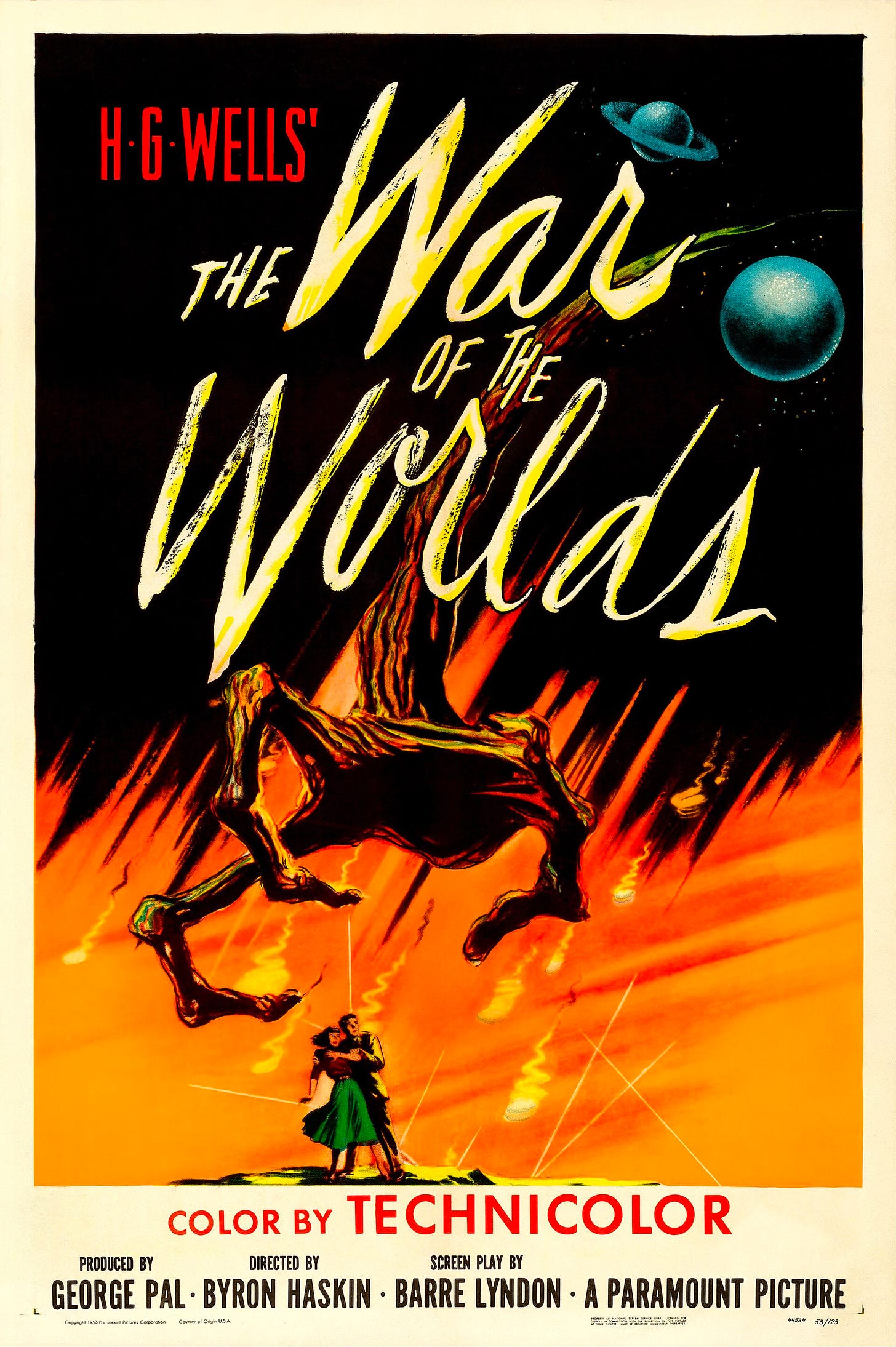W.J. Astore
It’s “The War of the Worlds”
Two nights ago, I watched the classic film version of H.G. Wells’s “The War of the Worlds.” Made in 1953, the film depicts a Martian invasion of the Earth, with humans being massacred in droves due to the superior technology of the Martian fighting machines. As the narrator intoned, channeling the book by Wells, it was the “massacre of humanity.” Spoiler alert: humanity is saved by viruses and bacteria that infect and kill the Martians.

As I watched the Martian fighting ships with their heat rays obliterate human cities, turning them into so much rubble, I was reminded of the scenes of destruction I’ve seen from Gaza. Essentially, the Israeli military, with its superior technology, most of it provided by the United States, are those Martians. The Palestinian people in Gaza are the outgunned humans facing annihilation.
There is a “War of the Worlds” in Gaza, and the Martians are winning. Whether diseases spread by the elimination of hospitals in Gaza by Israel, the cutting off of safe drinking water, the destruction of sewerage systems, and just general destruction of infrastructure will ultimately doom the Israeli war of conquest is unlikely. This time, the Martians just might win, at least in the short term.
Here in the USA, I continue to read articles that suggest Israel is justified in its massacres, though increasingly you see some hedging that perhaps the massive killing and bombing is a bit too indiscriminate. Good luck telling the Martians that.
The Martians in their war on Earth were quite plain about what they were about: the conquest of Earth and the elimination or subjugation of humanity. The Israeli government has been quite plain about what this war is about for them: the conquest of Gaza and the elimination or subjugation of the Palestinians there. It’s an old-fashioned war of conquest that is readily recognizable. One “world” has decided that another “world” must cease to exist.
And so Gaza is disappearing before our very eyes.



